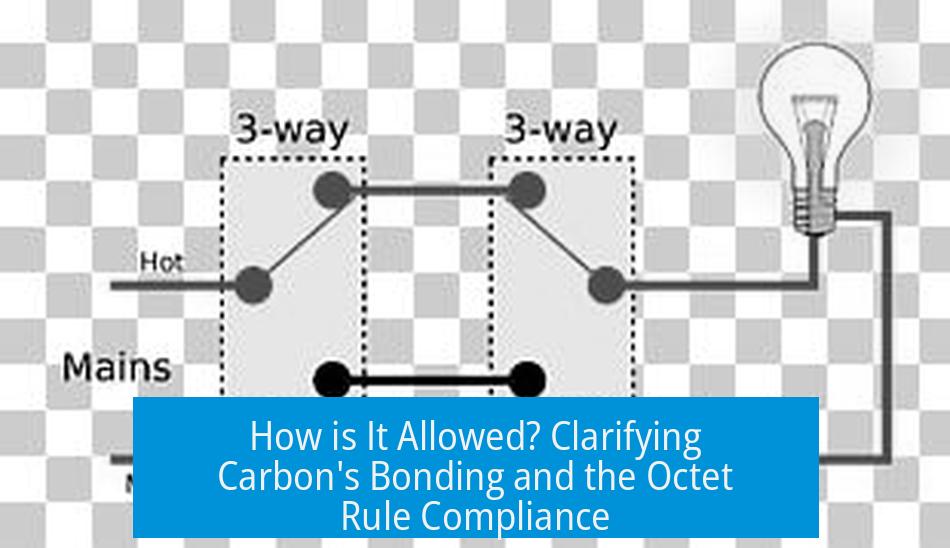Understanding Carbon and the Octet Rule
Carbon can form species that appear to violate the octet rule, but such cases are allowed because the octet rule is a preference, not an absolute requirement. Specifically, carbocations with a positive charge exhibit this behavior without truly breaking fundamental bonding principles.
Carbon’s Electron Configuration and Bonding
Carbon has four valence electrons and typically forms four bonds to complete an octet of eight electrons. This stable arrangement is common in organic molecules.
However, in certain intermediates like carbocations, carbon forms only three bonds and bears a formal positive charge. The carbon thus has only six electrons around it, short of an octet.
Octet Rule: Preference over Strict Rule
The octet rule guides stable molecule formation but does not forbid molecules with incomplete octets. In carbocations, the carbon center bears a positive charge (+1), signaling electron deficiency.
This positive charge formally accounts for the lack of a full octet, aligning with the rule’s preference rather than violation. The molecule is therefore allowed by standard valence bond principles.
Stability Concerns of Carbocations
- Carbocations with incomplete octets are highly reactive and generally unstable.
- They exist transiently during chemical reactions, often as short-lived intermediates.
- Their instability arises from the electron deficiency, promoting rapid reactions to regain a full octet configuration.
Summary Table: Carbon Octet Compliance
| Condition | Electron Count on Carbon | Formal Charge | Octet Rule Status | Stability |
|---|---|---|---|---|
| Typical neutral carbon | 8 electrons | 0 | Octet satisfied | Stable |
| Carbocation (electron deficient) | 6 electrons | +1 | Incomplete octet but allowed | Unstable, reactive |
Key Takeaways
- Carbon usually prefers to have an octet of electrons.
- Carbocations have only six electrons on carbon with a +1 formal charge.
- Such species don’t violate the octet rule because the rule is a guideline, not a strict law.
- Carbocations are unstable and exist as short-lived intermediates.





Leave a Comment